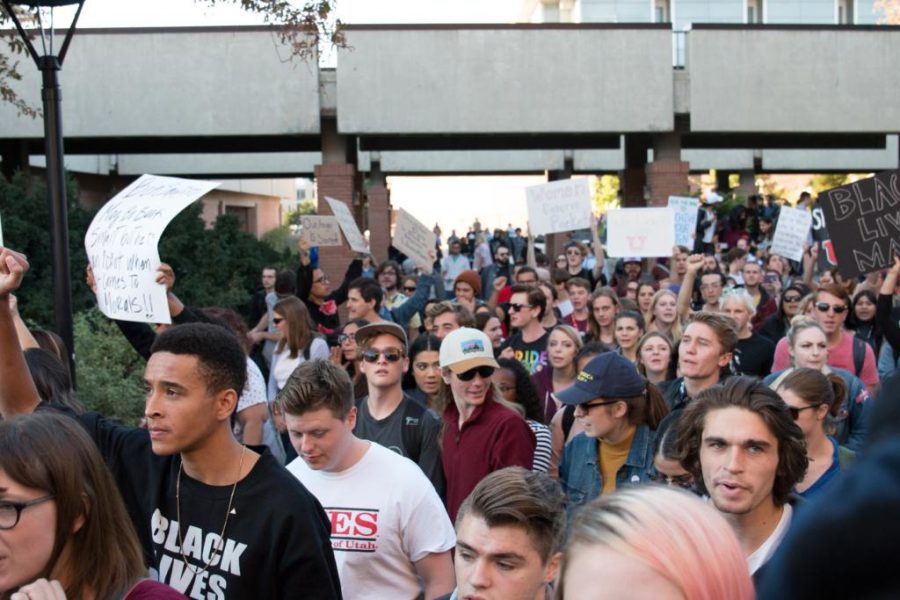
Protesters gather outside of a Ben Shapiro speech at the University of Utah on September 27, 2017. Chronicle archives.
Political correctness is not about free speech, it is about respect.
Tensions have been rising between those who argue for political correctness and those who decry it in the name of free speech. Arguments, anger, protests and counter-protests rage on, each side arguing vehemently for their point of view. It has been an issue on our own campus. Back in September, infamous alt-right speaker Ben Shapiro visited the University of Utah for a speech entitled “Trigger Warning.” The speech triggered a massive protest against his ideologies and presence on the campus. As protesters marched across the U grounds, hordes of counter-protesters stood on the sidelines to fight back in favor of free speech, yelling counter-arguments and holding signs that declared their rights.
Free speech is a constitutionally protected right. You are given the right to say whatever you want in our country, even if it is offensive or crude. When people ask you to use politically correct speech, they are not trying to take away your rights. They are asking for your respect. The request for you to try and be more politically correct does not halt free speech in any way because it has no legal backing. If you choose to say things that are hateful or disrespectful, no one can do anything about it. Nothing will happen to you. The government cannot (and will not) do anything. You cannot be arrested for it. You cannot be forced to use politically correct speech.
When people ask you to use a phrase, correct pronoun or proper term, they are asking you to respect them. By choosing not to use this language, you are essentially telling them that you refuse to do that. You are invalidating the hardships they have been through and displaying a lack of empathy for your fellow humans and their emotions.
Some people argue political correctness hinders the discussion of difficult topics. They say the fear of offending someone and eliciting an angry or aggressive response prevents conversations about things like race or gender issues from happening. At some level I agree. There are people who have not yet become educated on topics of social justice and simply do not know the significance, power or hurtfulness of what they are saying. They do not understand and the only way to help them understand is through conversation. You must be patient while they learn.
We are losing empathy, and this is a problem. In this time of turmoil, we forget that our fellow human beings deserve the same amount of respect that we do. The golden rule: Treat others like you would like to be treated. During these difficult discussions, if someone asks you to use a different term or explains why a certain action may be problematic, pay attention to what they say. Take the opportunity to learn from it and improve. Learn to be more understanding and more loving. If another person tells you that you hurt them or that you are being disrespectful, it is your job to listen and react with kindness, not hatred.
letters@chronicle.utah.edu
@TheChrony
